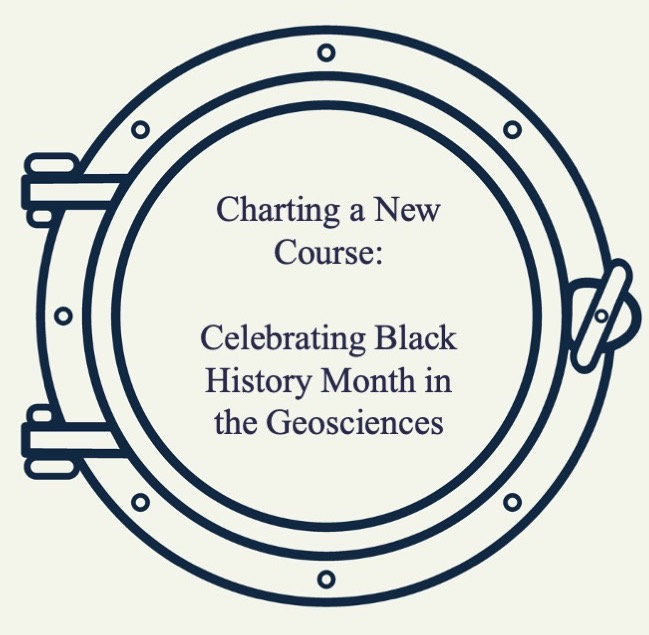

Our inaugural issue of Through the Porthole coincides with the start of Black History Month, a time to celebrate the (too often overlooked) achievements of Black Americans in all areas of American history and culture. It is also a time to reflect on the barriers that persist for Black Americans today, and to plan how each of us can contribute to building a more just society.
Oceanography has a poor track record on racial diversity. Most oceanographers are white and there has been little change in the racial composition of the field over time. This is not because the topics we study are only of interest or relevance to white people. In oceanography and the geosciences, our research has broad-reaching human implications, including changes in large-scale weather patterns, sea level rise, food (in)security, pollution, and the (un)availability of natural resources. These problems pose risks in every realm of society, and understanding them requires the collaborative efforts of a pool of motivated and skilled scientists. As a matter of justice, the composition of scientists studying these problems should include representation by all communities of people who are affected. As a matter of efficacy, doing the best science we can do demands a motivated team with diverse backgrounds and perspectives. Unfortunately, oceanography hasn’t come far enough in assembling this dream team.
But that doesn’t mean that there aren’t any Black oceanographers. In honor of Black History Month, this issue of Through the Porthole celebrates the contributions of Black geoscientists to our understanding the oceans and climate, and their contributions to the work of fighting climate change and environmental damage. Despite the weight of historical discrimination, Black scientists have contributed to the field of oceanography from the start. Two key figures in oceanographic history, Ernest Everett Just and Roger Arliner Young, are examples of Black scientists who worked in the nascent scientific community of Woods Hole in the early 20th Century. In this issue, we celebrate contemporary Black geoscientists of note. This work is more than can fit in a single newsletter issue, so throughout the month, we are releasing a short article each week profiling the work of a contemporary Black geoscientist of note. These scientists are currently active in the realms of academic research, policy, industry, and science communication and education. They also have diverse backgrounds when it comes to training and research areas of interest. Beyond what is covered here, we direct readers to resources where they can learn more about these scientists’ current work. For the first week, we celebrate two scientists: Dr. John Dabiri and Dr. Ayana Elizabeth Johnson.
Read our profiles of these contemporary geoscientists here:
For the second week of Black History Month, we are releasing a profile of another scientist:
For the third week of Black History Month, we are celebrating marine geologist Dawn Wright:
For the last week of Black History Month, we are celebrating environmental scientist Melanie Harrison Okoro:
The MIT-WHOI Joint Program's student-led Broader Impacts Group (BIG) also completed a series of articles in honor of Black geoscientists for Black History Month in 2020. You can read those articles here.
Read more of Through the Porthole Issue #1
Learn more about Through the Porthole
Learn more about the MIT-WHOI Joint Program